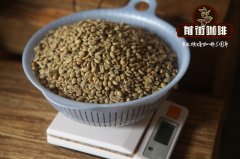Can I drink coffee before and after exercise? what is the effect of drinking coffee on strenuous exercise?

Caffeine is a commonly used sports nutritional supplement for athletes, but early studies on caffeine focused on aerobic endurance performance such as running, so is it effective in basketball, football, and tennis players who need to maintain high explosive performance? The research team of the Department of Sports and Athletics at National Taiwan normal University confirmed that adding 1 or 2 cups of black coffee an hour before exercise can help improve anaerobic burst endurance and make sports perform better on the field! The results have been published in the international journal European Journal of Applied Physiology.
Previous studies have known that caffeine improves aerobic endurance performance, which is related to stimulating heart function, increasing blood circulation, improving fat use efficiency, saving liver sugar use and so on. Because caffeine can also promote adrenaline secretion, stimulate the central nervous system, reduce pain, increase sarcoplasmic reticulum release calcium ions and increase muscle contractile strength, recent research has turned to issues related to the performance of high-intensity anaerobic exercise.
For ball players who need high-intensity intermittent sprint ability, such as basketball, football, tennis, etc., they not only need to have high explosive power and anaerobic ability, but also need to maintain the anaerobic explosive endurance of high explosive power performance continuously. For example, when vying for rebounds, continuous jumping height can maintain the same ability as the first jump.
The research team of Professor Zheng Jingfeng of the Department of Sports and Athletics of National Taiwan normal University, including Professor Li Jialun of the General Education Center of National Sun Yat-sen University and Professor Shi Mingzong of the Department of Sports and Sports Studies of National Taiwan normal University, pointed out in a study published in the international journal European Journal of Applied Physiology (European Journal of Applied Physiology) that first-class basketball players in domestic colleges Consuming 6 mg of caffeine per kilogram of body weight an hour before exercise can help promote anaerobic work capacity (about + 11%) and slow the decline in power output during high-intensity exercise.
At the same time, the study also found that caffeine can reduce the concentration of potassium before exercise, which may be related to delaying fatigue during subsequent high-intensity exercise. In another previously published study, the research team also found that caffeine intake by junior college An athletes before exercise also helped to improve the performance of high-intensity intermittent sprints. In other words, for ball players who need stop-walk (stop-and-go) mode, caffeine intake before exercise will help to improve intermittent sprint performance and anaerobic burst endurance on the court.
As for how much caffeine can effectively promote exercise performance? At present, most studies support the intake of 3-6 mg per kilogram of body weight. A medium cup of American coffee on the market contains about 150 milligrams (101-200 milligrams) of caffeine, so for leisure athletes weighing 70 kilograms, it is recommended to drink 1 or 2 cups an hour before sports or competition.
In addition, Professor Zheng Jingfeng's research team also found in a previously published study that caffeine intake with sugar supplementation would not further improve the sports performance of intermittent sprint, or even increase the body's catabolism. It is not conducive to the body to generate energy to supply exercise needs. Therefore, it is suggested that you should drink unsweetened black coffee before exercise in order to effectively promote the subsequent exercise performance.
Reminder: try the best effective dose during training
Caffeine has long been considered a diuretic that can lead to dehydration. However, compared with the amount of water loss caused by exercise, the effect of caffeine is not as serious as thought. It is worth noting that caffeine activates the sympathetic nervous system and promotes the secretion of epinephrine, which in turn increases the concentration of blood lactic acid during exercise. When the concentration of blood lactic acid is too high (> 8 mmol/L), it may affect the quality of performing exercise techniques.
Therefore, the researchers suggest that if you want to promote exercise performance through caffeine, you can try it in routine exercise training courses to obtain personal information on the best effective dose and reduce the impact of exercise technology implementation. On the other hand, people who are sensitive to caffeine, such as anxiety, insomnia, palpitations and other symptoms of drinking coffee, are advised not to drink it to avoid discomfort affecting exercise performance.
Source of the article: moving Planet
Important Notice :
前街咖啡 FrontStreet Coffee has moved to new addredd:
FrontStreet Coffee Address: 315,Donghua East Road,GuangZhou
Tel:020 38364473
- Prev

The history of coffee roaster is who invented the semi-direct fire and hot air which is better
Roasting green beans into aromatic coffee requires one important piece of equipment: a bean dryer. However, people have been drinking coffee for hundreds of years. At that time, there was no such advanced equipment. Instead, they started from the most spring way. Do you know the history of baking beans? Why are baking beans designed this way? How has history evolved? Let's look at the evolution of coffee roasting! coffee
- Next

Can coffee powder be regrinded? Will the secondary grinding have an adverse effect on the bean grinder?
We all know that coffee is best to be freshly ground and brewed, but if you get the coffee powder from others, if it is a bag of medium-sized powder, you may want to grind it into a fine grind, and then use the second-ground powder to make espresso. No matter how attractive espresso is to you, brew it with pre-ground coffee, even though re-grinding will not make a good coffee, and it is not recommended.
Related
- Beginners will see the "Coffee pull flower" guide!
- What is the difference between ice blog purified milk and ordinary milk coffee?
- Why is the Philippines the largest producer of crops in Liberia?
- For coffee extraction, should the fine powder be retained?
- How does extracted espresso fill pressed powder? How much strength does it take to press the powder?
- How to make jasmine cold extract coffee? Is the jasmine + latte good?
- Will this little toy really make the coffee taste better? How does Lily Drip affect coffee extraction?
- Will the action of slapping the filter cup also affect coffee extraction?
- What's the difference between powder-to-water ratio and powder-to-liquid ratio?
- What is the Ethiopian local species? What does it have to do with Heirloom native species?

